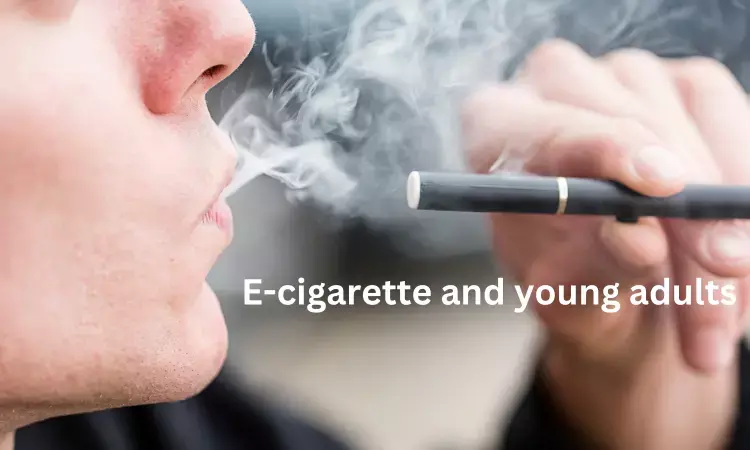- Home
- Medical news & Guidelines
- Anesthesiology
- Cardiology and CTVS
- Critical Care
- Dentistry
- Dermatology
- Diabetes and Endocrinology
- ENT
- Gastroenterology
- Medicine
- Nephrology
- Neurology
- Obstretics-Gynaecology
- Oncology
- Ophthalmology
- Orthopaedics
- Pediatrics-Neonatology
- Psychiatry
- Pulmonology
- Radiology
- Surgery
- Urology
- Laboratory Medicine
- Diet
- Nursing
- Paramedical
- Physiotherapy
- Health news
- Fact Check
- Bone Health Fact Check
- Brain Health Fact Check
- Cancer Related Fact Check
- Child Care Fact Check
- Dental and oral health fact check
- Diabetes and metabolic health fact check
- Diet and Nutrition Fact Check
- Eye and ENT Care Fact Check
- Fitness fact check
- Gut health fact check
- Heart health fact check
- Kidney health fact check
- Medical education fact check
- Men's health fact check
- Respiratory fact check
- Skin and hair care fact check
- Vaccine and Immunization fact check
- Women's health fact check
- AYUSH
- State News
- Andaman and Nicobar Islands
- Andhra Pradesh
- Arunachal Pradesh
- Assam
- Bihar
- Chandigarh
- Chattisgarh
- Dadra and Nagar Haveli
- Daman and Diu
- Delhi
- Goa
- Gujarat
- Haryana
- Himachal Pradesh
- Jammu & Kashmir
- Jharkhand
- Karnataka
- Kerala
- Ladakh
- Lakshadweep
- Madhya Pradesh
- Maharashtra
- Manipur
- Meghalaya
- Mizoram
- Nagaland
- Odisha
- Puducherry
- Punjab
- Rajasthan
- Sikkim
- Tamil Nadu
- Telangana
- Tripura
- Uttar Pradesh
- Uttrakhand
- West Bengal
- Medical Education
- Industry
E-cigarettes most likely to affect young adults and adolescents with respiratory symptoms

E-cigarettes popularly called "e-cigs," "vapes," "e-hookahs," "vape pens," and "electronic nicotine delivery systems (ENDS) are widely in use globally. While these devices may help few people quit smoking, there is growing evidence that e-cigarettes can pose serious health risks, especially to people who do not smoke traditional cigarettes.
Electronic cigarette aerosol are reported to contain volatile aldehydes, including flavourings and oxidant metals with known pulmonary toxicity. To evaluate the associations of e-cigarette use in young adults and adolescents with symptoms of wheeze, bronchitic symptoms and shortness of breath (SOB) researchers conducted a prospective study and revealed that E-cigarette use in young adults caused high incidence of respiratory symptoms, which was independent of combustible cannabis and cigarette exposures. The study findings are published in journal BMJ Thorax.
The researchers conducted high school-based survey on tobacco products and respiratory symptoms in 2014, conducted as part of the Southern California Children's Health Study. A total of 2,097 participants completed the initial survey in 2014, with 1,609 supplying follow-up information in 2015, then 1,502 participants in 2017, and 1,637 in 2018. Mixed-effects logistic regression models evaluated associations of e-cigarette use with respiratory symptoms.
The key findings of the study are
• Participants were mostly Hispanic white (51.8%) and evenly representative by sex i,e 49.6% female and 50.4% male.
• Compared with never e-cigarette users, past 30-day e-cigarette users reported increased odds of wheeze (OR 1.95; 95% CI 1.39, 2.72), bronchitic symptoms (OR 2.10; 95% CI 1.61, 2.73) and SOB (OR 1.81; 95% CI 1.25, 2.60), adjusting for study wave, age, sex, race, lifetime asthma diagnosis and parental education.
• Effect estimates were attenuated (wheeze (OR 1.48; 95% CI 1.05, 2.09), bronchitic symptoms (OR 1.58; 95% CI 1.20, 2.07), SOB (OR 1.52; 95% CI 1.04, 2.22)), after adjusting additionally for current cigarette use, cannabis use and secondhand exposure to e cigarettes/cigarettes/cannabis.
Researchers concluded that “ E-cigarette use in young adults was associated with respiratory symptoms, independent of combustible cannabis and cigarette exposures.”
Reference: Tackett AP, Urman R, Barrington-Trimis J, et al; Prospective study of e-cigarette use and respiratory symptoms in adolescents and young adults, Thorax Published Online First: 15 August 2023. doi: 10.1136/thorax-2022-218670.
MSc. Neuroscience
Niveditha Subramani a MSc. Neuroscience (Faculty of Medicine) graduate from University of Madras, Chennai. Ambitious in Neuro research having worked in motor diseases and neuron apoptosis is interested in more of new upcoming research and their advancement in field of medicine. She has an engrossed skill towards writing and her roles at Medical dialogue include Sr. Content writer. Her news covers new discoveries and updates in field of medicine. She can be reached at editorial@medicaldialogues.in
Dr Kamal Kant Kohli-MBBS, DTCD- a chest specialist with more than 30 years of practice and a flair for writing clinical articles, Dr Kamal Kant Kohli joined Medical Dialogues as a Chief Editor of Medical News. Besides writing articles, as an editor, he proofreads and verifies all the medical content published on Medical Dialogues including those coming from journals, studies,medical conferences,guidelines etc. Email: drkohli@medicaldialogues.in. Contact no. 011-43720751


